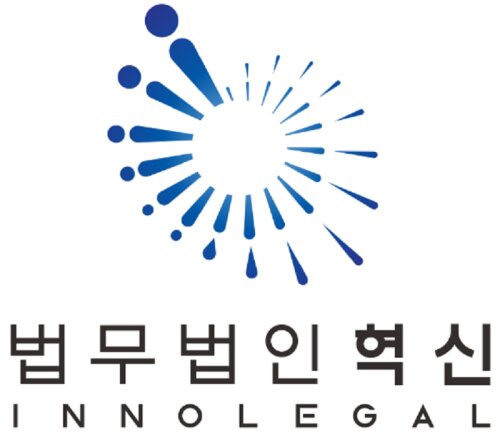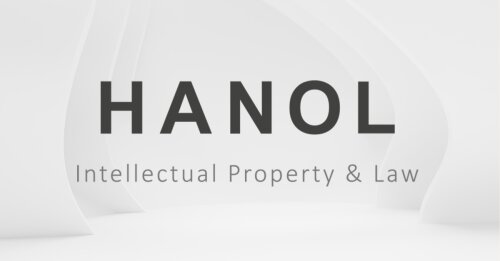Best E-commerce & Internet Law Lawyers in Seoul
Share your needs with us, get contacted by law firms.
Free. Takes 2 min.
List of the best lawyers in Seoul, South Korea
About E-commerce & Internet Law in Seoul, South Korea
E-commerce and Internet law in Seoul, South Korea, is evolving rapidly, adapting to the increasing globalization of online business and digital transactions. This legal field encompasses a wide array of issues, including data protection, privacy, intellectual property, consumer rights, and electronic contracts. South Korea is known for its advanced digital infrastructure and high internet penetration rate, making these laws critical for both local businesses and international companies operating within the country. The laws are designed to balance innovation and consumer protection while ensuring compliance with international standards.
Why You May Need a Lawyer
Legal assistance in the field of E-commerce and Internet Law is essential in several situations. Start-ups and established businesses may require legal advice on compliance with data protection regulations or to navigate online consumer rights issues. Legal help is often needed to draft terms of service or privacy policies that comply with local and international laws. In cases of online fraud, infringement of intellectual property rights, or disputes arising from digital contracts, legal expertise is crucial. Businesses facing cross-border transaction challenges or penalties for non-compliance with laws might also seek a lawyer's guidance to effectively address these problems.
Local Laws Overview
South Korea's local laws concerning E-commerce and Internet activities are comprehensive and are regularly updated to incorporate technological advancements. Key aspects include:
- Personal Information Protection Act (PIPA): This is the primary legislation governing data protection. It imposes stringent requirements on businesses handling personal information, necessitating explicit consent and protection measures.
- E-Commerce Consumer Protection Act: This law outlines the rights and obligations of consumers and sellers, addressing issues such as refunds, exchanges, and dispute resolutions.
- Electronic Financial Transactions Act: Regulates secure electronic payment systems, establishing protocols for authentication, confidentiality, and transaction reporting.
- Intellectual Property Regulations: These include copyrights and trademarks laws pertinent to protecting digital content and brands online.
- Network Act: Oversees the protection and use of telecommunication networks and data, preventing illegal data acquisition and distribution.
Frequently Asked Questions
What is the Personal Information Protection Act (PIPA)?
PIPA is a comprehensive set of regulations aimed at safeguarding personal information. It mandates businesses to obtain consent before data collection, ensure data security, and maintain transparency in data usage.
Do I need to register my e-commerce business in South Korea?
Yes, all e-commerce businesses operating in South Korea must be registered and comply with local regulations, including proper business registration and tax obligations.
What are the penalties for non-compliance with data protection laws?
Penalties can include hefty fines, orders to suspend business operations, and in severe cases, criminal charges against company executives.
How can I ensure my online terms and conditions are legally compliant?
It's advisable to consult with a lawyer to draft terms and conditions that comply with South Korea's E-commerce Consumer Protection Act and international standards.
What steps are required to resolve an e-commerce dispute in South Korea?
Disputes can often be resolved through negotiations or mediation. If these fail, legal proceedings may be initiated in South Korean courts.
How are intellectual property rights enforced online in South Korea?
Enforcement is rigorous, with legal measures available to prevent and penalize the unauthorized use of copyrighted materials and trademarks online.
What does the Electronic Financial Transactions Act cover?
This act regulates electronic payment methods, requiring businesses to implement secure, reliable systems for processing transactions.
Are there any restrictions on digital marketing in South Korea?
Yes, digital marketing must comply with consumer protection laws, and explicit consent is required for marketing communications under PIPA.
Can foreign companies operate e-commerce platforms in South Korea?
Yes, foreign entities can operate, but they must adhere to the same regulations and obtain necessary licenses and permits as local businesses.
What is the role of the Korea Communications Commission (KCC)?
The KCC is responsible for enforcing laws concerning telecommunications and broadcasting, including aspects relevant to internet regulation and compliance.
Additional Resources
Here are some helpful resources for anyone seeking legal advice in the realm of E-commerce & Internet Law:
- Korea Communications Commission (KCC): Overseeing telecommunication regulations.
- Korean Intellectual Property Office (KIPO): For issues related to IP rights and enforcement.
- Korean Fair Trade Commission (KFTC): For consumer protection and fair trade law queries.
- Personal Information Protection Commission (PIPC): Responsible for administering data protection laws.
Next Steps
If you require legal assistance in E-commerce & Internet Law in Seoul, it is recommended to seek out a specialized lawyer with expertise in digital and internet regulatory frameworks. Conduct thorough research to find a reputable legal firm or individual lawyer. You might consider scheduling consultations to understand the scope of services offered and to ascertain which lawyer can best meet your needs. It's also beneficial to gather all relevant documentation and information related to your legal issue to facilitate a more effective consultation and legal strategy building.
Lawzana helps you find the best lawyers and law firms in Seoul through a curated and pre-screened list of qualified legal professionals. Our platform offers rankings and detailed profiles of attorneys and law firms, allowing you to compare based on practice areas, including E-commerce & Internet Law, experience, and client feedback.
Each profile includes a description of the firm's areas of practice, client reviews, team members and partners, year of establishment, spoken languages, office locations, contact information, social media presence, and any published articles or resources. Most firms on our platform speak English and are experienced in both local and international legal matters.
Get a quote from top-rated law firms in Seoul, South Korea — quickly, securely, and without unnecessary hassle.
Disclaimer:
The information provided on this page is for general informational purposes only and does not constitute legal advice. While we strive to ensure the accuracy and relevance of the content, legal information may change over time, and interpretations of the law can vary. You should always consult with a qualified legal professional for advice specific to your situation.
We disclaim all liability for actions taken or not taken based on the content of this page. If you believe any information is incorrect or outdated, please contact us, and we will review and update it where appropriate.













